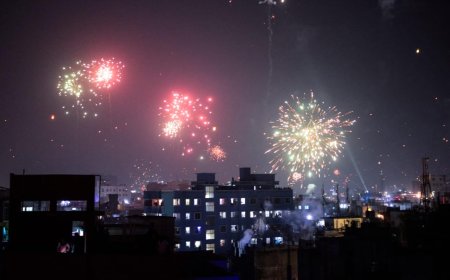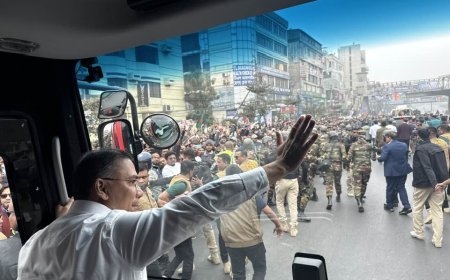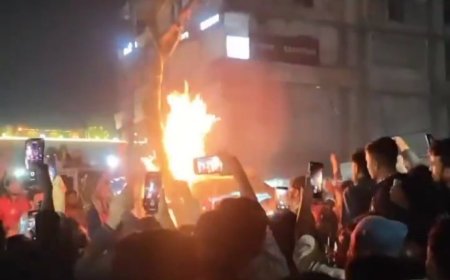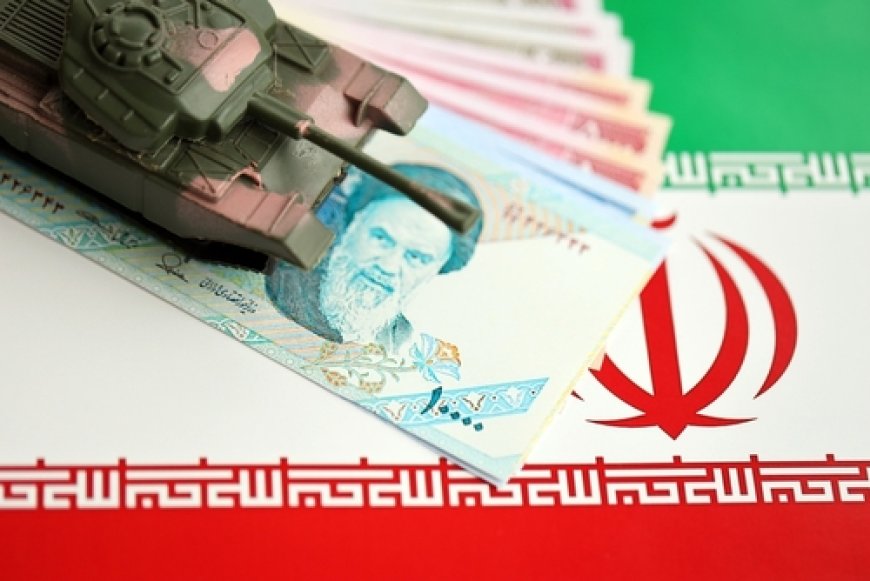Netanyahu’s Gamble in Iran Echoes Hamas’s October Miscalculation
If Netanyahu is acting on the belief that his attack on Teheran will lead to the internal overthrow of the regime, it seems that he has misunderstood Iran entirely.
Prime Minister Netanyahu appears to have made a strategic miscalculation not unlike Hamas’s on October 7 -- initiating a high-stakes confrontation without securing full backing from allies or proxies.
His war calculus rests on a single assumption: that targeted assassinations and sustained military pressure will trigger mass civil unrest inside Iran, leading to the overthrowing of the Islamic Revolutionary Guard Corps (IRGC).
I believe that assumption is dangerously flawed. The IRGC is not a fringe militia. It is the backbone of Iran’s state security apparatus, a powerful economic actor, and an ideological engine of the regime. Crucially, it is also Iran’s primary military force. Targeting it is not akin to weakening a faction -- it is a declaration of war on the Iranian state.
Despite long-standing public grievances with the clerical establishment, the IRGC’s domestic critics are not celebrating these attacks. Early reports indicate that Israels provocation and attacks has produced the opposite of what Netanyahu intended: a coalescing of nationalist sentiment across ideological lines. Nationalism, not liberal revolt, has been the dominant Iranian civic reaction.
Iran has been prepared for a war with Israel for decades, and plans would have been sharpened afree October 7th 2024, ajd Israel’s recent war with Hezbollah.
Assassinating top Iranian commanders may generate headlines, but it is unlikely to paralyse IRGC’s operations. Its depth of leadership and decentralised structure are designed precisely for continuity under attack -- a lesson the United States learned in Iraq, where removing Ba’athist leadership failed to prevent a prolonged insurgency.
Since the collapse of the JCPOA and the assassination of Qassem Soleimani in 2020, Iran has doubled down on its contingency planning. It has decentralised command structures, invested in continuity-of-government measures, hardened key military sites, and fortified leadership shelters deep within its mountainous interior. A decapitation strike strategy, in other words, is unlikely to succeed.
Israel, meanwhile, faces far tighter constraints. Unlike in Gaza, it cannot carry out murderous attacks on defenceless civilians and inflict mass civilian casualties without undermining the very rationale for regime change -- nor can it sustain a prolonged military campaign against a state as vast and resilient as Iran.
A ground invasion is out of the question. For the United States -- Israel’s indispensable ally -- the idea is politically and militarily untenable. Two decades in Afghanistan and Iraq proved the limits of American power in asymmetric and mountainous terrain, even with local proxies. A land war in Iran would be longer, bloodier, and almost certainly end in death of 1000s of ground troops, which neither Israeli nor American public tolerate nor endure.
That leaves air strikes -- but even these offer limited advantage. Iran is not Gaza. It spans over 1.6 million square kilometres -- more than 70 times the size of Israel. Its mountainous topography, dispersed population centres, and extensive network of tunnels offer natural defences. Its missile arsenal is formidable. Iran possesses thousands of ballistic and cruise missiles, as well as an emerging array of supersonic drones and anti-ship capabilities.
Events of the past 48 hours have already proven Iran’s ability to penetrate Israeli air defences and inflict serious damage to infrastructure. Any meaningful escalation could ignite multiple fronts -- in Lebanon, Syria, Iraq, or even the Gulf -- threatening global energy markets and regional stability.
A punishing air campaign, perhaps supported by cyberattacks and sabotage, may remain on the table. But even this strategy is fraught with risk. Iran’s air defences, now bolstered with Russian and Chinese technology, are increasingly sophisticated. Its cities -- unlike those in Iraq in 2003 -- are braced for bombardment. And while Iran would undoubtedly suffer, its geographic and demographic scale -- with over 80 million people spread across hundreds of towns and cities -- gives it strategic depth.
Israel, by contrast, is densely populated, highly urbanised, and psychologically vulnerable. The asymmetry is real. Israeli morale is already under pressure after months of rocket fire from Hamas and Hezbollah. The country’s social cohesion is showing signs of strain, pulled between nationalist fervour and mounting protests against Netanyahu’s leadership.
Iran, for its part, has spent over four decades enduring sanctions, isolation, and war. Its threshold for suffering is higher. And its patience is longer.
Strategically, Netanyahu is playing with fire. If the escalation is intended to force Washington’s hand, it may backfire. President Trumps MAGA support base is in no mood for another Middle Eastern war -- certainly not one with high costs and uncertain gains.
Hamas overestimates its leverage and underestimating Israel’s response on its made that mistake on October 7 2024 attack. It seems to me that Netanyahu is doing the same: mistaking escalation for strategy, and pressure for power.
Wars are not won with bravado. They are won with endurance. And in a war of endurance, Iran seems to hold the advantage.
Toffael Rashid is a global marketing professional
What's Your Reaction?

















































































